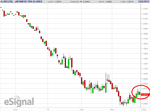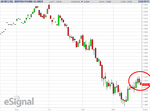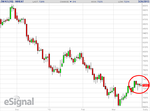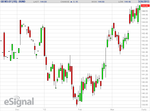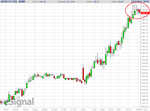Yamato
Legendary member
- Messages
- 9,840
- Likes
- 246
Got it, found another one, this time a documentary (even better):
The Trillion Dollar Bet (2000) - a documentary about the demise of Long Term Capital Management - YouTube
Holy cow, gotta watch this over and over again, because it is very related to my automated trading.
Long-Term Capital Management - Wikipedia, the free encyclopedia
"Nova" Trillion Dollar Bet (TV episode 2000) - IMDb
Louis Bachelier - Wikipedia, the free encyclopedia
And it is an excellent documentary as well.
Minute 10 brings up a very good point on traders vs academics:
"...the discovery of randomness outraged the traders, but it galvanized the academics..."
Of course, being a trader, I am disgusted and outraged by the theory of the "random walk", and by all academics in general.
Even if you were just to consider the fact that any asset cannot go below a price of zero, this alone excludes randomness. When an asset is close to zero, it is more likely to rise and when it's high it is more likely to fall. This alone excludes the randomness that we see in the roulette. I don't have to read or write an academic paper to find out this simple fact.
...
awesome last 2 minutes!
The Trillion Dollar Bet (2000) - a documentary about the demise of Long Term Capital Management - YouTube
Holy cow, gotta watch this over and over again, because it is very related to my automated trading.
Long-Term Capital Management - Wikipedia, the free encyclopedia
"Nova" Trillion Dollar Bet (TV episode 2000) - IMDb
Louis Bachelier - Wikipedia, the free encyclopedia
And it is an excellent documentary as well.
Minute 10 brings up a very good point on traders vs academics:
"...the discovery of randomness outraged the traders, but it galvanized the academics..."
Of course, being a trader, I am disgusted and outraged by the theory of the "random walk", and by all academics in general.
Even if you were just to consider the fact that any asset cannot go below a price of zero, this alone excludes randomness. When an asset is close to zero, it is more likely to rise and when it's high it is more likely to fall. This alone excludes the randomness that we see in the roulette. I don't have to read or write an academic paper to find out this simple fact.
...
awesome last 2 minutes!
Last edited:

